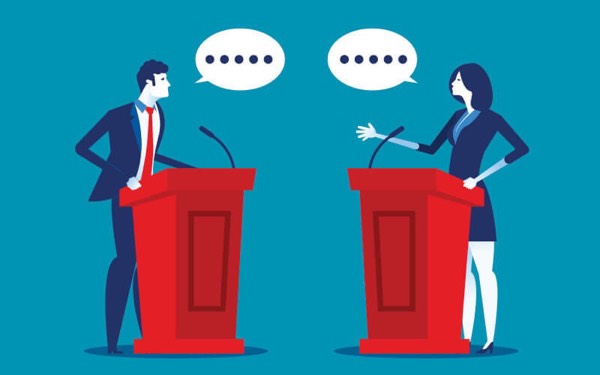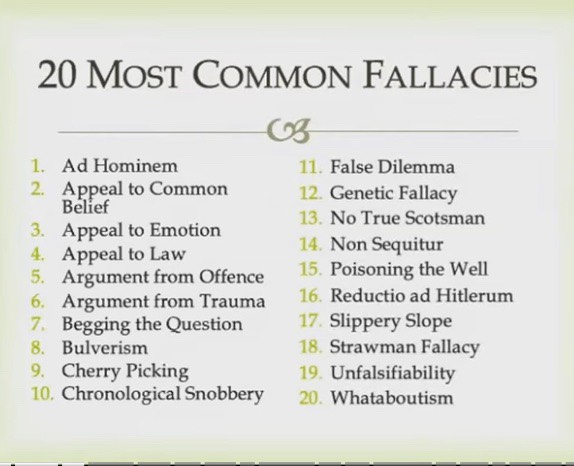
Laura Monk
@ThriveLauraMonk · 5:00
Rules for Debating & Arguing
And then I have 27 or 28 fallacies to avoid in arguing, which I personally like to call cheating in discussions or cheating in debates. So I'll go over those in the next segment. So this will definitely be more than one segment, so listen on for the fallacies in the next segment, the first one will be just the rules. So let's start the eleven rules for arguing. One stay rational and logical. Two don't make assumptions

Laura Monk
@ThriveLauraMonk · 5:00
Well, as we know, roosters crowing every morning when the sun comes up is not the cause of the sun coming up, clearly, but in an argument, someone might try to use that argument. Well, every time this happens, then this thing happens right after it. So that must mean that these think two things are causing each other or they're correlated, and often many times they're not correlated

Laura Monk
@ThriveLauraMonk · 5:00
For example, in the Christian example, 2 billion people are Christian, so Christianity must be the correct religion, but someone else could say, but we have 8 billion people on the planet, and so what if the other 6 billion people are right, or the other 3 billion who are another religion are right? So just because something has billions behind it does not necessarily mean it's correct. The next one is appeal to emotion

Laura Monk
@ThriveLauraMonk · 5:00
And conversely, someone might say, like, well, it's legal, I'm allowed to do it, doesn't necessarily mean that that's a thing they should be doing doesn't mean it's moral. For example, the next one is appeal to offense. So just because something is offensive to you, it should not be used in an argument. For example, you can't dispute a religion because it will offend people. Or I'm offended you would even allude to me cheating on you

Laura Monk
@ThriveLauraMonk · 5:00
So we come to these conclusions in our heads, or some people will come to these conclusions in our heads, but one does not equal the other. One does not mean the other. That's a false dichotomy. So the next one, the genetic fallacy, thinking the origin of the person affects the argument. That might sound like that can't be true because a child said it. Or what does he know? He's from Guam. No offense to people from Guam. Just an example

Laura Monk
@ThriveLauraMonk · 5:00
Next one reductionism or the reduction fallacy, this is usually to Hitler or the N*** card or communism or anything considered bad. So for example, if you do X-Y-Z then you're exactly like blank example. If you study eugenics, then you must be like Hitler. Or if you want universal health care, then you must be a communist

Laura Monk
@ThriveLauraMonk · 5:00
Avoid them at all costs, okay? Anyway, thank you for being here. I really appreciate you. I look forward to seeing you in the next podcast. As always. Take care of yourself. Work on yourself, better yourself, and meet me here once again tomorrow for another new podcast. All right, take care of yourself and bye for now. Bye

